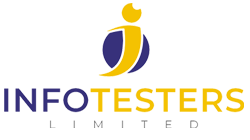In complex commercial fraud matters, money laundering is almost always interlinked with it. This is because if someone deceives a company or individual out of funds or assets they will then look to ensure those funds or assets are out of reach of anyone who may be looking to retrieve them. This is where the law of asset tracing has a vital role.
How Asset Tracing Services Can Save Business Transactions
-
September 13, 2021
- Posted by: admin

Asset tracing or asset tracking is a legal process of locating something of value to an individual or company that has been misappropriated. Asset tracing is closely related to fraud or theft. Assets include everything owned by a business or an individual, like; real estate, stocks and shares, possessions, undeclared bank accounts, intellectual property rights, company assets, vehicles, livestock, yachts and money.
Despite a surge in anti-corruption crusades, the damage has deepened in public offices, where victims who lost their assets due to unfortunate events such as scam, embezzlement or theft, now use this tool called asset tracing to initiate the asset recovery process. Many businesses simply don’t have the resources, knowledge or time to chase up fraudsters themselves. They need a specialist investigation agency to do the digging for them.
The focus of asset tracing is obtaining key information that can benefit clients who want to recover the assets. Assets are everything owned by a business or an individual. There can be many things: real estate, stocks and shares, possessions, undeclared bank accounts, intellectual property rights, company assets, vehicles, livestock, and money.
These are some of the steps to consider for asset tracing or recovery:
- What are the other assets?
- What is the value of the asset?
- What is the ownership structure?
- In what jurisdiction(s) it is located?
- How liquid is the asset?
- What are the chances of recovery?
Forensic accounting is also key to asset tracing and often required in divorce proceedings. When forensic accountants get involved, they look for any financial discrepancies and establish whether or not a person is hiding assets.
According to the article by Basel institute of governance the International Centre for Asset Recovery has been helping Uganda’s Office of the Director of Public Prosecutions expand understanding of the work of its Asset Recovery Division across its regional offices.
For asset recovery to be undertaken, the process involves; freezing of assets till conclusive decision, and restraining the culprit or those acting in their favor from access and sale. The success therefore, depends largely upon the criminal investigator’s ability to track the ownership trail of money and other assets. Again it takes constant effort and time and study, another reason for calling in the asset tracing experts.
Financial investigations are a large part of the work that private security firms perform especially when it comes to helping clients protect business and personal financial interests. With all the fraudulent activity there are numerous reasons why businesses, insurance companies, attorneys, and individuals hire private firms to conduct an asset trace, including determining whether a borrower has the means to pay back a loan, conducting due diligence when entering into a contract or merger/acquisition, in anticipation of litigation, and dealing with compensation issues arising from personal or property injuries.
The framework for the return of stolen assets, requires state parties to take measures to restrain, seize, confiscate, and return the assets. To do so various mechanisms are applied such as:
- Direct enforcement of freezing or confiscation orders made by the court;
- Civil actions initiated by another party, allowing that party to recover the proceeds as plaintiff;
- Confiscation of property of a foreign origin by adjudication of an offense of money laundering or other offenses;
- Court orders of compensation or damages to another party and recognition by courts of another party’s claim as a legitimate owner of assets acquired through corruption;
- Spontaneous disclosure of information to another party without prior request; and
- International cooperation and asset return.
Assets are traced by private investigators or other interested parties in private civil actions. As a preliminary activity to the recovery of stolen assets, the identification and tracing of the proceeds of crime and securing the property for final confiscation is an essential part of the process.
The tracing of money and property can be successful, if the investigator is equipped to uncover and identify ownership interests often camouflaged by changes in the form and nature of the ownership, and know how to unravel accurately cleverly disguised control over, and interest in, property.
Asset recovery is all about moving quickly. If steps are not put in place early, the prospect of finding the money, even if you can trace it, gets more uncertain as each day passes. Whether conducting an asset trace on a business or an individual, the primary goal is to develop usable information to help avoid making a bad financial decision or in the case of loss, collect a debt.
In Conclusion, the process of asset tracing and recovery often turns out to be quite hard or difficult. It requires that additional local experts be employed, large volumes of documents may have to be translated, the costs of management and maintenance of frozen/seized assets or funds have to be considered, taking possession and returning the assets or funds may involve considerable costs. Even with this framework, the practice of recovering stolen assets remains complex. Do reach out to have a chat on how you can be supported via info@infotesters.com.

